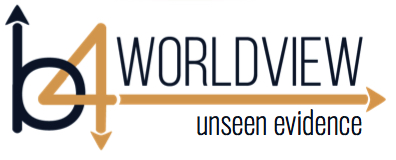
Key Thought for this session:
“Faith is the evidence I cannot observe for the truth that I must act on.”
When I traveled to Europe for the first time, I knew there was a different currency, so, I researched the Euro and found there is a 1 Euro coin and a 2 Euro coin.
One important piece of information I learned from my research is that the 1 Euro coin is larger in size than the 2 Euro coin. This seemed counterintuitive at first since the 1 is worth less in value than the 2. But my research gave me eido knowledge of the relative value of the two coins with respect to the SIZE of the coins.
When I arrived at my first European destination, I immediately exchanged my dollar currency for euros. I then flagged down a taxi. While only having eido knowledge that the larger coin is worth less, I was hesitant about paying the driver because I wasn’t really sure. By cautiously paying the taxi driver with my eido knowledge of coins, I became comfortable with the contrast between the value and size of the coins. When it came time to pay, my gnosis knowledge would testify to my mind the correct amount without having to conscientiously look at the coins. Now having both eido and gnosis knowledge of the 1 and 2 euro coins, I spent the rest of my time in European countries with a confidence that I could trust evidence from both facts and experience that I was giving the right amount to the cashier when I bought something.
And also, in the realm of science, a lot of people are under the mistaken impression that science is built only on eido knowledge, or facts, that come from physically observable data. What they don’t realize is that in scientific research, data that are collected by physically observable measurements are NOT accepted unless, AND until, there exists “sound” theory to substantiate why that data should produce the results it does. And, as it turns out, these theories that we use to interpret and accept data, are formed in part by gnosis knowledge. While hypotheses must be validated by eido knowledge, no scientific experiments can ever be published without good theory. The hypotheses upon which our scientific theories are based, are all faith statements, revealed to the scientist by intuition, revelation and experience, OR as we say, “gnosis knowledge.”
So there is no science that is considered conclusive and trustworthy until eido evidence and gnosis evidence exist and fit together.
Okay, so, this is such an important realization. Let me say it again:
There is no science that is considered conclusive and trustworthy until eido evidence and gnosis evidence exist and fit together.
Now I’d like to go way back to the story of the orphan adopted by the rich man. Let’s review this story together one more time just to refresh your memory:
Once there was an orphan girl who lived in the slums of the city. She felt abandoned, was alone and had to find ways to feed and clothe herself from the garbage heaps around the town. One day the rich man who lived in the mansion on top of the hill above the city was moved with compassion for the orphan girl and chose to adopt her. So, she came to live with him in the mansion on top of the hill above the city. She had all new clothes and could feast at the rich man’s banquet table. However, while the girl knew she was adopted, she still felt like an orphan. She identified more with the street people than as a child of the rich man. She was more comfortable in the slums because she still saw herself as destitute. Instead of receiving the provisions and privileges of her new father, daily she would go back down into the city and look for food and clothes in the garbage. Although she had been given a new identity, she still viewed herself as an orphan.
While it can be valuable to remember our roots and not forget the people we have relied on in the past, the point of this story is to focus on the reasons for why the orphan girl had trouble taking full advantage of her new life. The orphan girl had eido knowledge of the legal fact that she was adopted. But apparently, she was lacking gnosis knowledge, and that is why she was having trouble fully accepting this new relationship.
Had she had deeper gnosis knowledge of the rich man, perhaps by spending time with him, and seeing for herself how much he actually cared for her, she would have had a deeper understanding of his heart and would have trusted his commitment to her, and then more fully enjoying the privilege of her adoption.
The opposite can be true too. Gnosis knowledge without valid eido knowledge can also cause a problem. Maybe the orphan girl had not been given any eido information about her adoption or about the man’s character, but had had a bad experience with men in the city. Maybe her gnosis knowledge or intuition of men was not aligned with what was true about her adopted father. This too would cause her to NOT trust or rely on the evidence of her adoption or her new father’s care and concern for her.
Almost everyone experiences disorienting circumstances at times in their life that create feelings of uncertainty in us. Things like: Financial stress, broken relationships, bad health, the death of a loved one, corruption where bullies take advantage of innocent people, and many other hardships. The point being made here, is that in these difficult situations, if we don’t have both good eido knowledge and trustworthy gnosis knowledge in order to properly INTERPRET our circumstances, then we will end up making bad decisions and then choosing the wrong actions—resulting in a bigger mess in our life.